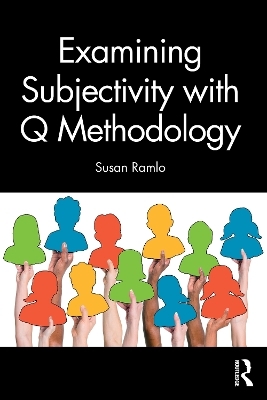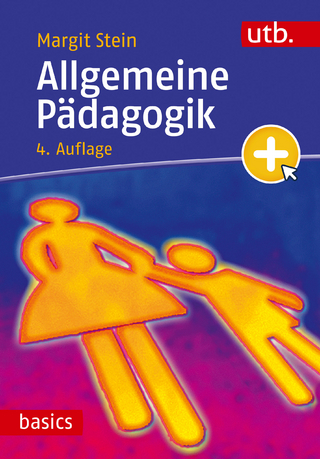
Examining Subjectivity with Q Methodology
Seiten
2025
Routledge (Verlag)
978-1-032-84269-1 (ISBN)
Routledge (Verlag)
978-1-032-84269-1 (ISBN)
- Noch nicht erschienen (ca. März 2025)
- Versandkostenfrei innerhalb Deutschlands
- Auch auf Rechnung
- Verfügbarkeit in der Filiale vor Ort prüfen
- Artikel merken
This innovative book explores how Q methodology offers a unique way to examine subjectivity, meaning people’s viewpoints, in that it both differentiates and describes viewpoints, by blending qualitative and quantitative research methods.
This innovative book explores how Q methodology offers a unique way to examine subjectivity, meaning people’s viewpoints, in that it both differentiates and describes viewpoints, blending qualitative and quantitative research.
The book provides accurate terminology and consistent practices, with examples of using Q to study subjectivity in a variety of contexts and disciplines. The book also frames Q within its mixed status – blending qualitative and quantitative research aspects from data collection to analysis and interpretation. The author aims to help readers to understand the basics of Q methodology as well as some “rules of thumb” in an easy to read yet accurate text in terms of processes and theoretical frameworks of Q.
This is an essential text for those interested in using Q methodology in qualitative research and mixed methods research across a range of disciplines.
This innovative book explores how Q methodology offers a unique way to examine subjectivity, meaning people’s viewpoints, in that it both differentiates and describes viewpoints, blending qualitative and quantitative research.
The book provides accurate terminology and consistent practices, with examples of using Q to study subjectivity in a variety of contexts and disciplines. The book also frames Q within its mixed status – blending qualitative and quantitative research aspects from data collection to analysis and interpretation. The author aims to help readers to understand the basics of Q methodology as well as some “rules of thumb” in an easy to read yet accurate text in terms of processes and theoretical frameworks of Q.
This is an essential text for those interested in using Q methodology in qualitative research and mixed methods research across a range of disciplines.
Susan Ramlo is a researcher based in Northeast Ohio with international recognition as a Q methodologist and mixed methods researcher. Her publications, including over 55 refereed journal articles and multiple book chapters, indicate the broad applications of Q methodology as well as her deep interest in methodological issues. As a physicist, some of her publications focus on the quantum physics that is intertwined within Q methodology.
1. What is subjectivity?
2. Q overview and terminology
3. Historical overview of Q
4. How to get started on your Q study
5. Data collection
6. Data analysis
7. Interpretation
8. Extension: Questions pertaining to studying subjectivity
| Erscheint lt. Verlag | 11.3.2025 |
|---|---|
| Zusatzinfo | 15 Tables, black and white; 4 Line drawings, black and white; 5 Halftones, black and white; 9 Illustrations, black and white |
| Verlagsort | London |
| Sprache | englisch |
| Maße | 156 x 234 mm |
| Themenwelt | Sozialwissenschaften ► Pädagogik ► Allgemeines / Lexika |
| Sozialwissenschaften ► Pädagogik ► Bildungstheorie | |
| Sozialwissenschaften ► Pädagogik ► Erwachsenenbildung | |
| ISBN-10 | 1-032-84269-5 / 1032842695 |
| ISBN-13 | 978-1-032-84269-1 / 9781032842691 |
| Zustand | Neuware |
| Informationen gemäß Produktsicherheitsverordnung (GPSR) | |
| Haben Sie eine Frage zum Produkt? |
Mehr entdecken
aus dem Bereich
aus dem Bereich
Einführung in die Theorie transformatorischer Bildungsprozesse
Buch | Softcover (2023)
Kohlhammer (Verlag)
34,00 €


